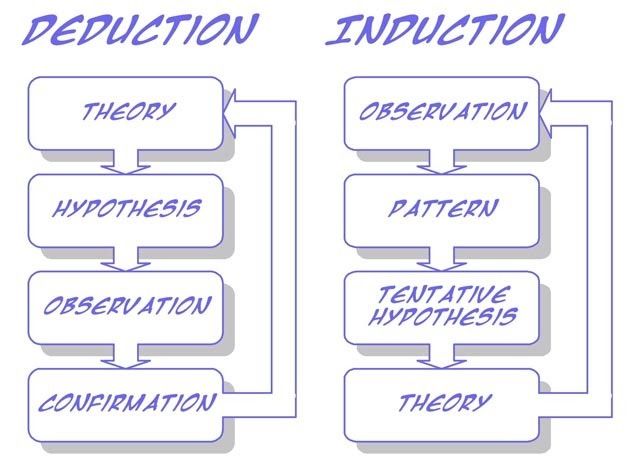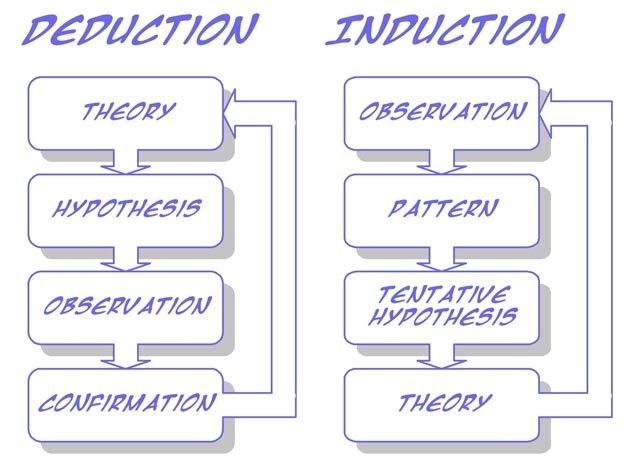research methods and data analysis midterm
5.0(1)
Card Sorting
1/73
Earn XP
Description and Tags
Last updated 7:40 PM on 3/8/23
Name | Mastery | Learn | Test | Matching | Spaced | Call with Kai |
|---|
No analytics yet
Send a link to your students to track their progress
74 Terms
1
New cards
theory
ideas about how the world works
2
New cards
epistimology
the science of knowing
3
New cards
methodology
the science of finding out
4
New cards
multicausality
there’s multiple causes of things
5
New cards
paradigm
theoretical frameworks that structure what we observe and how we interpret it
6
New cards
importance of theory
prevents flukes, explains why patterns make sense, suggests avenues for social action, suggests new paths of research, determines the why of social patterns
7
New cards
paradigm shift
‘shift’ in the basic concepts, assumptions, and methods of scientific inquiry
8
New cards
macrotheory
theories of large portions of society
9
New cards
microtheory
theories of smaller portions of society (small groups, social networks)
10
New cards
mesotheory
not concerned with social life, attempts to generalize theories
11
New cards
social theory
systematic explanation for the observed patterns of social life (how the world is, not how it should be)
12
New cards
deduction
general to particular

13
New cards
induction
particular to general

14
New cards
research ethics
consensus norms regarding proper conduct in research
15
New cards
pillars of research ethics
voluntary participation, no harm to participants, and informed consent
16
New cards
belmont report
fundamental ethical principles involving human subjects (respect for persons, benefits, and justice)
17
New cards
informed consent
participants must be informed of all details of the study before consenting
18
New cards
anonymity
response cannot be linked to subject
19
New cards
confidentiality
researcher can identify subject, but won’t
20
New cards
deception
withholding certain info that could invalidate the study
21
New cards
ethical considerations in analysis and reporting
selective reporting, data fraud, plagiarism, carelessness of analytical methods
22
New cards
institutional review boards
assure risks are minimized at research institutions
23
New cards
objectivity and ideology
weber-sociology need to remain unencumbered by personal values, marx disagreed. research should have an intentional impact
24
New cards
political considerations of social research
conflicts of interest, ‘politicization’ of science, scientific censorship
25
New cards
3 purposes of social research
exploration, description, explanation
26
New cards
exploration
satisfy initial curiosity, test feasibility, develop methods for a pilot study
27
New cards
description
what is observed
28
New cards
explanation
explain why observed patterns exist
29
New cards
ideographic explanation
understanding of causes of outcomes in single/small number of cases (case studies)
30
New cards
nomothetic explanation
identify factors that cause ______ in general
31
New cards
dependent variable
affected role (being caused)
32
New cards
independent variable
causal role (doing the causing)
33
New cards
nomothetic causality
x causes y, if you change x then y changes too
34
New cards
correlation
x is associated with y
35
New cards
time order
x before y
36
New cards
nonspuriousness
there’s no alternative explanation
37
New cards
reverse causality
y causes x
38
New cards
omitted variables bias
leaving out a variable to show causation or a connection
39
New cards
necessary causes
condition must be present for effect to happen
40
New cards
sufficient causes
condition guarantees the effect
41
New cards
unit of analysis
what/who is being studied
42
New cards
ecological fallacy
assumption that something about the unit says something about individual making up that unit
43
New cards
reductionism
reducing the explanation to limited/low-order concepts
44
New cards
cross-sectional study
study done at one point in time (snapshot)
45
New cards
longitudinal study
data collection at different points in time
46
New cards
trend study
change over time
47
New cards
cohort study
subset studied over time
48
New cards
panel study
examine same units at each point in time
49
New cards
mixed methods
used to strengthen weakness of one method with the strengths of another
50
New cards
conceptualization
clarifying what things you are studying
51
New cards
concepts
theoretical marker representing class of things
52
New cards
indicator
observation that is reflective of a concept/variable
53
New cards
dimension
specific aspect of a concept
54
New cards
operationalization
process by which concepts are measured empirically
55
New cards
variables
logical set of attributes
56
New cards
attributes
characteristic/quality of something
57
New cards
nominal
no intristic order
58
New cards
ordinal
intristic order
59
New cards
binary (dichotomous variable)
two exhaustive categories
60
New cards
interval
rank ordered and equal distances between adjacent attributes
61
New cards
ratio
interval measures has a ‘true zero’ point
62
New cards
mutually exclusive
each observation can only take on one value for given variable
63
New cards
exhaustive
all possible values of a measure must be included
64
New cards
precision
‘fineness’ or resolution of the attributes measured
65
New cards
accuracy
extent to which attribute accurately reflects social reality
66
New cards
measurement validity
degree to which a variable’s operationalization accurately reflects the concept
67
New cards
construct validity
degree to which construct relates to other variables as expected
68
New cards
content validity
does the measure capture all content domain of the construct?
69
New cards
face validity
measure construct of interest
70
New cards
criterion-related validity
check performance of measure against an external criterion
71
New cards
measurement reliability
the extent to which operationalizations of the concept show consistent results
72
New cards
test-retest reliability
tests across time should show consistent results
73
New cards
internal reliability
consistent responses across similar items
74
New cards
inter-rater reliability
consistent rating by different observers